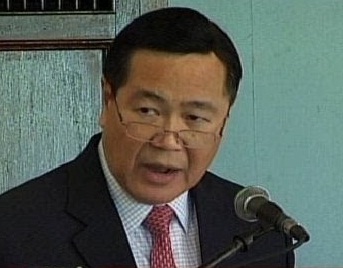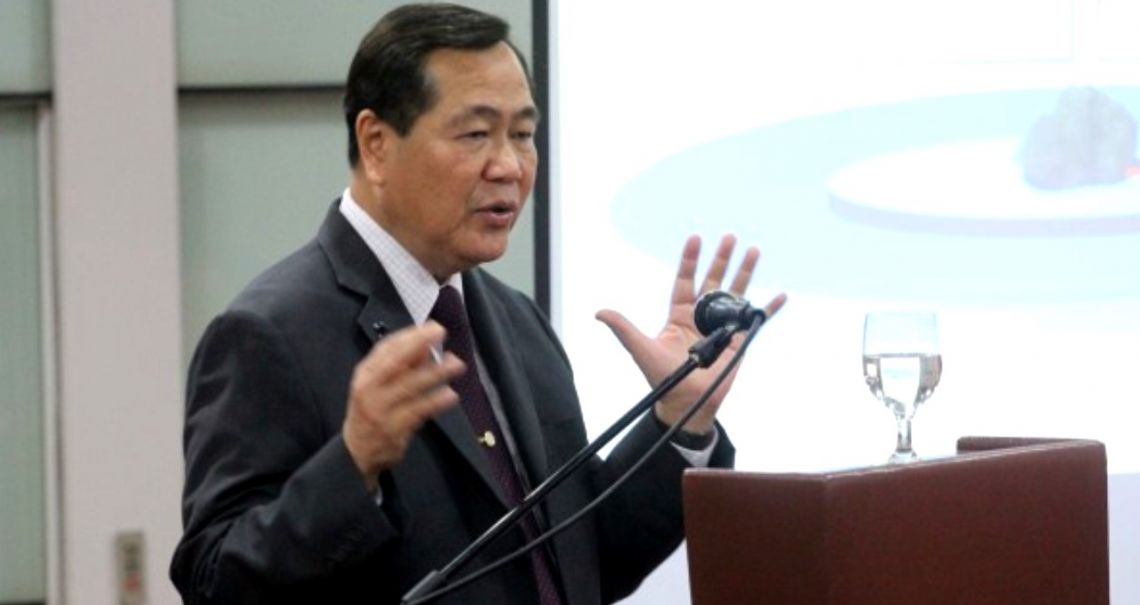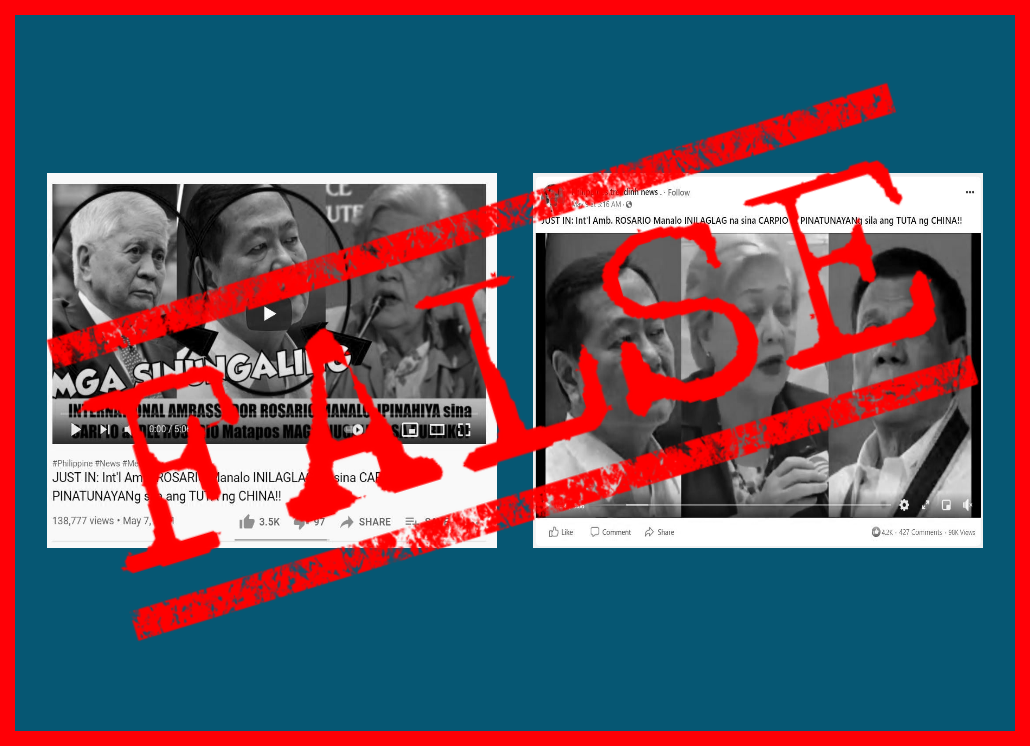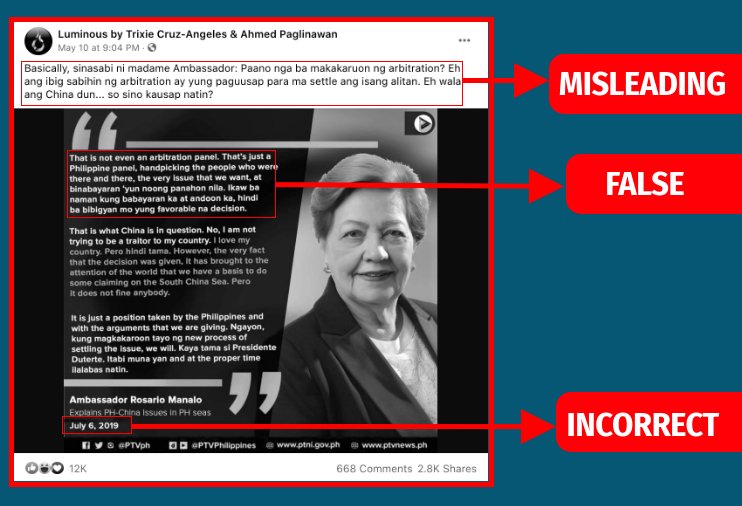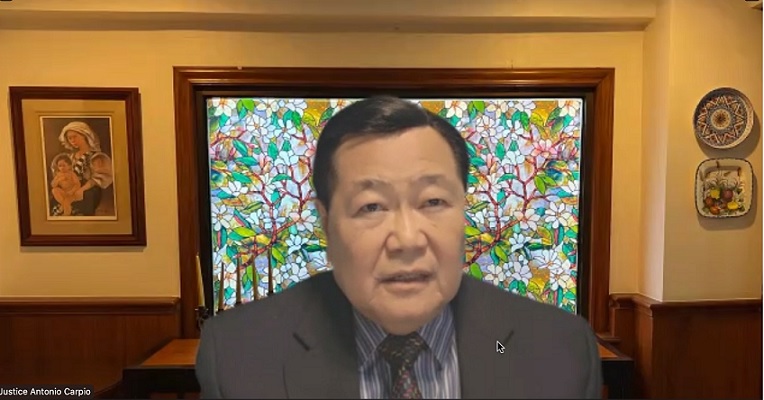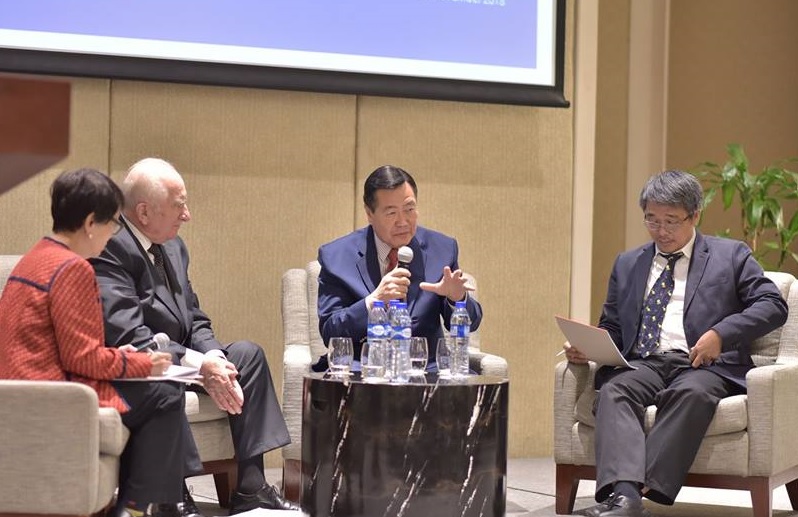
Acting Chief Justice Antonio Carpio stresses a point during the open forum in a Maritime Dispute in the South China Sea. With him are UP Professor Jay Batongbacal, ITLOS Judge Stanislaw Pawlak, and Rappler’s Marites Vitug who served as moderator. Photo by Konrad Adenauer Stiftung Philippines Office.
A timely clarification by the Department of Foreign Affairs of President Duterte’s statement setting aside the Arbitral Court ruling on the South China Sea dispute saved the Philippine win, Acting Chief Justice Antonio Carpio said in a forum on Maritime Disputes in the South China SeaFriday.
Asked in an open forum on the effect of the Duterte government’s lack of insistence on the implementation of the 2016 Arbitral Court decision in favor of the Philippines against China on the disputed features in South China Sea, Carpio recalled the time of Dec. 17, 2016, a Saturday, when the President returning from state visits to Cambodia and Singapore declared, “In the play of politics now, I will set aside the arbitral ruling.”
Carpio said he got alarmed because there’s a doctrine in the International law that declarations publicly made by the head of state or government or by the foreign minister and manifesting the will to be bound may have the effect of creating legal obligations.
“In law, to set aside is to reverse. In Supreme Court, when we reverse the lower court, we say, “We set aside the trial of the lower court,” he said.
Carpio said, “So when I heard this, I talked to my friends in the DFA, ‘please clarify.’ Because to set aside means to abandon, to reverse. You have to say that the president is just putting it aside just to ask or to demand enforcement at some future time.
First thing Monday morning, then Foreign Secretary Perfecto Yasay, Jr. clarified that the Duterte“will not deviate” from the arbitral decision and that the Philippine government “reaffirms its respect for and firm adherence to this milestone ruling and will be guided by its parameters when tackling the issue of maritime claims in the South China Sea.”
Four hours after DFA issued the clarification, Chinese Foreign Ministry Spokesperson Hua Chunying read China’s statement in Beijing: “We welcome and appreciate President Duterte’s relevant remarks. We believe that President Duterte’s policy on dealing with the arbitral ruling over the South China Sea issue coincides with the common interests of the two countries and their people, and shows the constantly deepening mutual trust and friendship.”
“It was too late, we already clarified” Carpio said explaining that, “once the declaration is already accepted by the other party, other state, you are bound.
The lesson here, Carpio said, is “So we have to be very careful that we don’t waive the award because of careless talk.”
University of the Philippines professor Jay Batongbacal, another guest in the forum, sounded the alarm that even with the Arbitral Court ruling, China controls the resources in the disputed areas of South China Sea.
“My worry is that, at some point in time, even the award is valid, even the award actually recognize our rights to the fisheries resources, you know what they said, it might [come] that there is no fish that time, then it really renders the awards just a piece of paper,” he said.
He added that the scientific community has already sounded the alarms of a collapse of the fish stocks in the South China Sea. “They are now going under severe stress and over exploitation,” he warned.
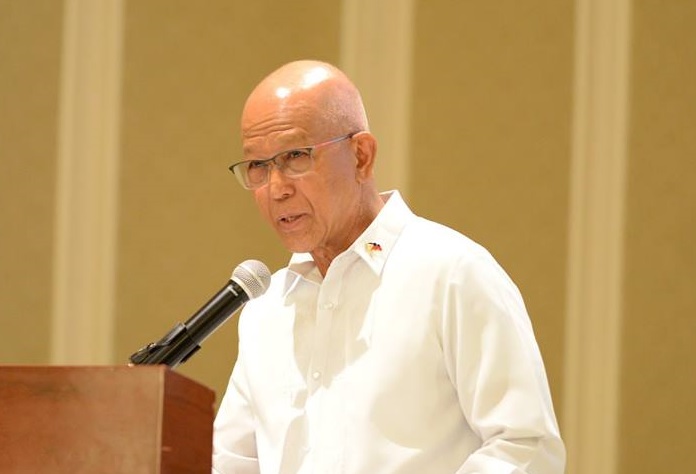
Defense Secretary Delfin Lorenzana. Photo by Konrad Adenauer Stiftung Philippines Office.
Defense Secretary Delfin Lorenzana shared several behind the scenes incidents related to the Arbitral Ruling.
He related that a week before the July 12, 2016 release of The Hague-based Arbitral Rulingof its decision on the Philippine complaint against China, then United States Defense Minister Robert Gates called to advise him that he should “exercise restraint” on China and avoid doing anything that might “provoke” the regional superpower.
Lorenzana said he asked Gates on what he meant by “restraint.” Gates replied:“Don’t do anything on South China Sea that will provoke some trouble there.”
The defense chief said,“I was thinking to myself, what does he mean by that? Do we have the capability to look for trouble there?”
Lorenzana said his conversation with Gates was significant as he was already planning to talk to the Philippine Navy to send a small force that might “drive away the Chinese” on the Scarborough Shoal.
Before the anouncement of the Arbitral Court decision, they were ordered by the Presidentnot to “overly celebrate.” On the day of the ruling, Lorenzana said all the cabinet members were in Malacañang and the agreed that they would have “a soft landing.”
That explained, he said, the “somber” appearance of Yasay when he read his statement on the ruling.
